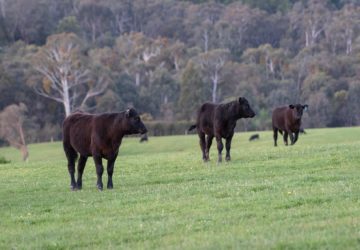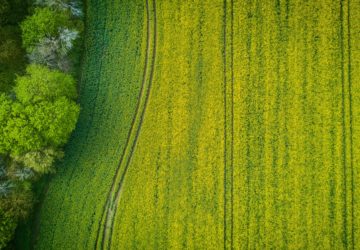French agriculture, one of the historic pillars of our national economy, relies on the daily work of several thousand men and women who cultivate our regions and our land, raise a multitude of animals and contribute to our country’s food supply. Often overlooked, the role of women in this sector is just as essential as that of their male alter egos. In a farming world that is often masculinised, women farmers are digging their own furrows with determination. Their stories, woven from the fabric of hard work and perseverance, are blazing new trails. They are the architects of a silent revolution often referred to as ‘the invisible ones’ that transcends gender barriers, demonstrating that the earth has no preference based on person, but rather welcomes all who are prepared to plough its secrets.
So how do we promote gender equality in an environment that is often perceived as masculine, and encourage more women to take up farming? How are women farmers becoming players in the gradual transformation of the sector, and what impact is this revolution having on the traditional perception of agriculture? What are the specific obstacles facing women in agriculture, and how can these be overcome to ensure equitable participation?
To begin with, let’s look at some figures:
Statistics on women’s participation in farming vary from country to country, region to region and data collection methodology to methodology. In France, for example, according to the 2021 agricultural census by the National Institute for Statistics and Economic Studies (INSEE), women accounted for around 29.5% of farm managers. (That’s around 121,400 women who are farm managers or employees. The agricultural production sector employs 360,300 women, down 5.6% on 2020 and down 8.2% over the last 10 years. They account for 125,000 full-time equivalents (FTEs) and 35.7% of employees in the sector. Women in agriculture are: farm managers, co-managers or partners: 62%; spouses or relatives of the farm manager: 21%; employees: 17%.
Recognition of the role of women in French agriculture: a winding road
Until the 1960s, farmers’ wives, despite their active participation in the running of farms, never had any social or professional status and were not considered to be farmers. It was not until 1980 that the status of ‘co-operator’ was created. Women then acquired the right to perform the administrative acts required for the proper management of the farm. But the real breakthrough in terms of recognition of women’s agricultural work came in 1985 with the introduction of the EARL (limited liability farm). This made it possible for spouses to become partners, while individualising their tasks and responsibilities.
Women have benefited from major advances towards equality between farmers and their wives, as well as with employees in other professions. These include the creation in 1999 of the status of ‘collaborating spouse’, the extension of social security cover for farmers’ spouses in 2006 and the introduction of the GAEC between spouses in 2011. As of 1 January 2019, the LFSS (social security financing law) for 2019 has opened up the possibility for female farmers to benefit from daily allowances in the event of maternity, with the minimum period of absence also increased to 8 weeks for maternity leave. As well as rights, mentalities are changing.
Not just training…
The surprising thing about the proportion of women in agriculture is that girls are very well represented in agricultural training. They account for 50% of students in technical agricultural education and 61% in higher education in the sector. They are also to be found in the agricultural engineering schools, which have the highest proportion of girls: 59% compared with 23% for engineering schools as a whole. As for the veterinary schools, they score an impressive 74%. These figures show that women are very interested in agriculture. But behind this, a large number of women change career paths, moving into processing, agri-food or the civil service once they have their diplomas, not to mention retraining for other professions. Through these courses, women find a way to break down social, economic and cultural barriers, opening the door to a more promising and egalitarian future. This enables them to take their rightful place in all aspects of agriculture.
Women in agriculture :
The participation of women in this field has played a crucial role in many aspects of agriculture. Through management, participation, processing, their involvement in various tasks with animals, authorities, policies and where their competence no longer needs to be demonstrated. Times have changed, abolishing the stereotype of women confined to the traditional role of ‘housekeeper’. Women have always had just as many skills as their male counterparts in agricultural matters, and it is thanks to those who have defied stereotypes by occupying strategic positions that were once predominantly male that many advances in favour of women in agriculture have been made possible. Without their contribution, current conditions for women in this field might not have reached such a high level of advancement.
We invite you to watch Edouard Bergeon’s report entitled ‘Femmes de la terre’, already broadcast on France 2 on 26 February, to discover their journey and the obstacles they overcame to reach their current position.
Developments and challenges : The growing role of women in agriculture and the challenges ahead
Women still face a significant number of inequalities. These disparities are manifested through obstacles such as limited access to finance, the undervaluing of their work and the difficulties inherent in reconciling professional and personal life.
These obstacles persist despite the fundamental role played by women in the agricultural sector and the challenges they face. Indeed, limited access to finance limits the scope for expanding farming activities, and we should remember that the number of farms has fallen from 2 million after the war to less than 400,000 today. What’s more, the lack of recognition for their work only accentuates inequalities, hindering progress towards real equity in the agricultural sector.
Fortunately, support initiatives are emerging to meet these challenges. Networks of women farmers provide a forum for the exchange of experience and mutual reinforcement. At the same time, political measures are being implemented to actively promote gender equality in agriculture, aimed at eliminating discrimination and ensuring fair treatment.
The involvement and day-to-day communication of established women farmers, who share their experiences by highlighting the rewards they find in farming, play an essential role. These authentic stories are crucial to raising public awareness, deconstructing gender stereotypes and encouraging other women to proudly embark on a more inclusive and equitable farming career.
And tomorrow ?
The agricultural professions are becoming increasingly feminised, thanks to the women who are driving the industry forward, cooperating with each other, expressing their skills more assertively and fully demonstrating their know-how.
Nevertheless, there is still a long way to go to achieve true equality between men and women in agriculture. Many aspects of the sector are still marked by a persistent masculinisation, reflected even in the acronyms commonly used (for example, JA for Jeunes Agriculteurs, but why not Jeunes Agricultrices?). In the various competitions, the presence of women remains limited, whether as participants or even in the composition of the juries. As far as the authorities and cooperatives are concerned, although there are signs of openness and some women have had the opportunity to play a key role, helping to change attitudes and conditions, the question remains: why do so few women hold representative positions in this profession? What steps can be taken to achieve parity in agriculture?
Women are key players in French agriculture, making a significant contribution to the richness and diversity of the sector. Recognising their role, supporting their commitment and promoting equal opportunities are essential steps in ensuring a sustainable and prosperous future for French agriculture. Simply put, they are extraordinary in this world, and they are our future too. Men and women farmers contribute equally to the growth and success of French agriculture, so it’s time to highlight the importance of equality between men and women in this field.
Mickaël JIQUEL – Negotiator Vendée
Pour aller plus loin

Transferring ownership through a specialist firm: a successful operation at the Mottay farm

